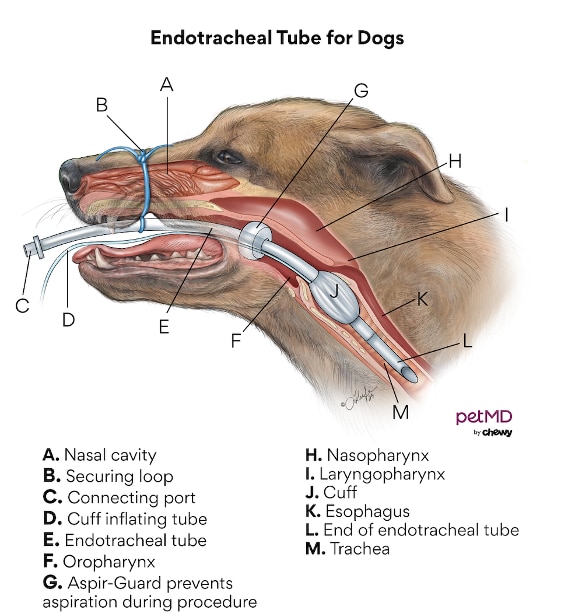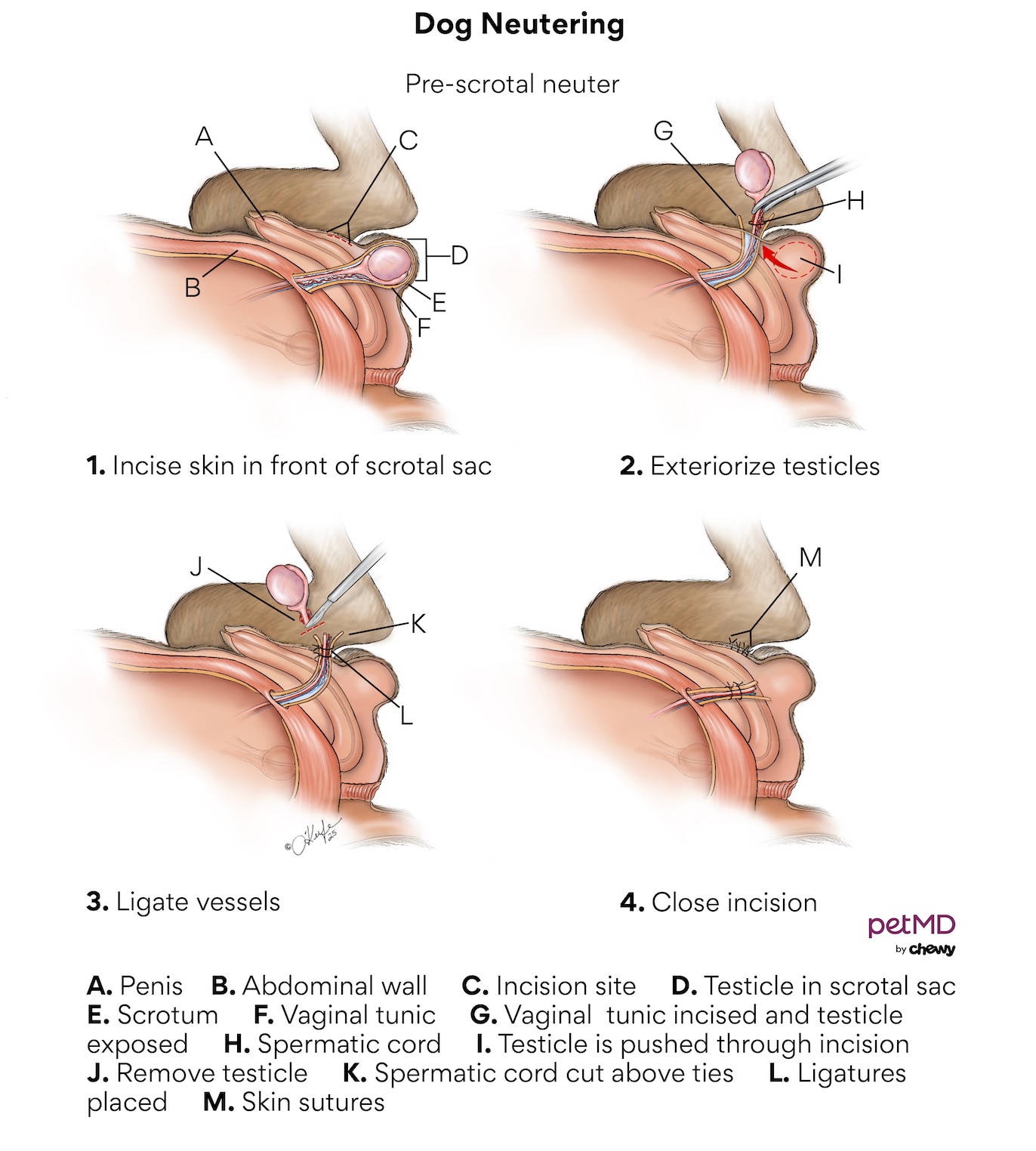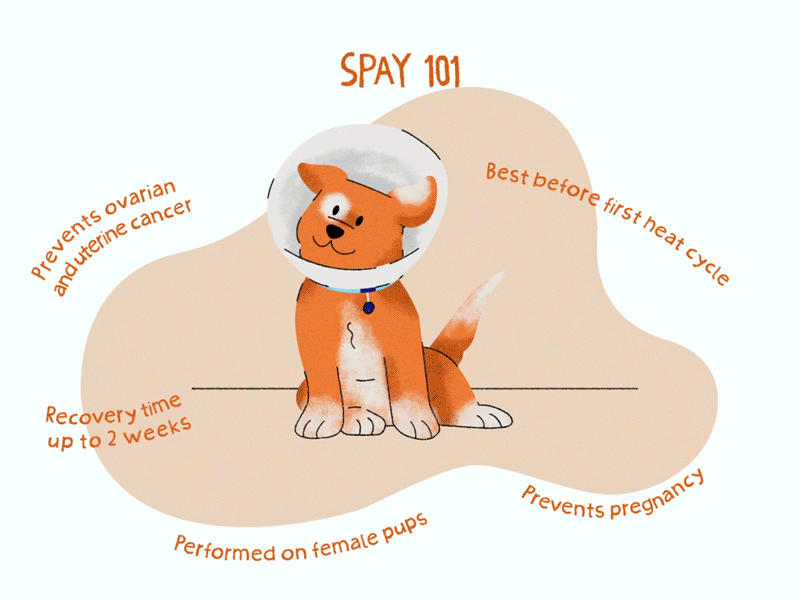No, a dog should not eat before being neutered. The usual advice is to avoid food for 8-12 hours before surgery.
This helps prevent complications during anesthesia. Why is this fasting period important? Neutering is a common and safe procedure. Yet, it involves anesthesia, which can cause nausea. If a dog vomits during surgery, it can be dangerous. Food in the stomach increases this risk.
Vets suggest fasting to ensure your pet’s safety. Owners often worry about their dog feeling hungry. But the fasting period is crucial for a smooth surgery. Understanding this can ease concerns and prepare you for your pet’s big day. Always follow your vet’s specific instructions. Each dog may have unique needs.
Pre-surgery Considerations
Preparing a dog for surgery involves crucial steps to ensure their safety. Understanding pre-surgery considerations is vital for pet owners. This includes dietary restrictions and other guidelines. Proper planning can reduce risks and promote a smooth recovery.
Age And Health Factors
Age impacts a dog’s readiness for surgery. Puppies might have different needs than adult dogs. Health conditions also play a significant role. A vet examines health before surgery. Issues like obesity or chronic illness may require special attention.
Pre-operative Instructions
Follow your vet’s instructions carefully. They might advise fasting before surgery. This usually means no food for 8-12 hours prior. Water intake may be allowed until closer to the surgery time. These steps prevent complications during anesthesia.
Medication guidelines are also crucial. Some medicines may need adjustments. Discuss any supplements or vitamins with your vet. This ensures they won’t interfere with the surgery process.

Credit: www.petmd.com
Fasting Guidelines
Preparing your dog for surgery involves several important steps, and fasting is one of them. Understanding the fasting guidelines is crucial to ensure your furry friend’s safety during the procedure. Let’s break down why fasting is required and how long your dog should fast before being neutered.
Why Fasting Is Important
Fasting is essential before surgery to prevent complications. When a dog eats, food remains in the stomach for hours. During anesthesia, there’s a risk of vomiting, which can lead to choking or aspiration pneumonia.
Safety is the priority. Ensuring your dog has an empty stomach reduces these risks significantly. It’s an act of care that can make a big difference in your dog’s surgical experience.
Recommended Fasting Duration
Most veterinarians suggest a fasting period of 6 to 12 hours before surgery. This means no food after dinner the night before. Water is usually allowed until a few hours before the procedure.
Follow your vet’s specific instructions. They may adjust the fasting duration based on your dog’s age, size, or health condition. It’s always better to ask questions if anything is unclear.
Have you ever had your dog undergo surgery? If so, you might recall feeling anxious about following pre-surgery instructions. It’s normal. Just remember, these guidelines are set to ensure everything goes smoothly for your beloved pet.
Risks Of Feeding Before Surgery
Feeding your dog before surgery might seem harmless, but it poses significant risks. Understanding these dangers can ensure your pet’s safety and comfort during the procedure. This knowledge empowers you to make informed decisions and avoid complications. Let’s dive into the specific risks associated with feeding your dog before being neutered.
Anesthesia Complications
Anesthesia is a crucial part of the neutering process. If your dog eats before surgery, the anesthesia can cause serious issues. Food in the stomach may lead to increased chances of regurgitation during the operation. Your vet needs to manage anesthesia without worrying about your dog’s recent meal.
Have you ever felt nauseous after eating and then lying down? Imagine that feeling under anesthesia. This can interfere with the procedure and recovery. It’s best to follow the vet’s advice and ensure your dog has an empty stomach.
Vomiting And Aspiration Risks
Feeding your dog before surgery can lead to vomiting. Vomiting during anesthesia is dangerous. The contents of the stomach can be inhaled into the lungs, a condition known as aspiration.
Aspiration can cause pneumonia or other serious respiratory problems. Your dog’s safety is paramount, and avoiding food before surgery reduces these risks significantly. Have you ever wondered how to prevent your dog from discomfort and health issues during surgery?
Most veterinarians recommend withholding food for at least 8-12 hours before surgery. This precaution helps prevent any complications related to vomiting or aspiration. Always adhere to your vet’s guidelines for pre-surgery feeding.
By understanding these risks, you ensure a smoother surgery and a quicker recovery for your furry friend. Have you had experiences with your pet’s surgery? Share your insights and help others keep their pets safe and healthy.

Credit: www.petmd.com
Special Cases And Exceptions
Deciding if a dog should eat before being neutered involves special cases and exceptions. Each dog is unique. Factors like age and health conditions play crucial roles. Some dogs may need specific care due to their circumstances.
Puppies And Senior Dogs
Puppies require extra attention before surgery. Their bodies are still growing and developing. They may need some food before neutering to avoid low blood sugar. Always consult a vet for the best advice.
Senior dogs often face different challenges. Their metabolism and health may demand tailored care. Some older dogs might need food to ensure stable blood sugar levels. Regular check-ups help determine their needs.
Health Conditions Requiring Adjustments
Dogs with certain health issues might need dietary changes before neutering. Conditions like diabetes require careful monitoring. A vet can recommend the best approach. Dogs with digestive problems may need special diets. Proper guidance ensures their safety and well-being.
Always discuss with a professional before making decisions. Each dog’s health is paramount. It’s important to follow expert advice for a smooth surgery.
Preparing Your Dog For Surgery
Preparing your dog for surgery involves careful planning and care. Neutering is a common procedure, but it requires some preparation. Ensuring your dog is ready helps reduce complications. It also ensures a smoother recovery. Here are some tips to help you prepare your pet.
Comfort And Safety Measures
Ensure your dog has a quiet space. This reduces stress before surgery. Provide a comfortable bed. It helps your dog rest well. Remove any hazards from your home. This ensures your dog stays safe. Keep their favorite toys nearby. They can provide comfort during this time.
Managing Anxiety And Stress
Dogs sense our emotions. Stay calm to help your dog feel secure. Spend time with them before surgery. It helps ease their anxiety. Practice short separations. This prepares them for staying at the vet. Use calming music or scents. These can soothe your dog’s nerves. Consult your vet for anxiety solutions. They can recommend safe options.

Credit: www.banfield.com
Post-surgery Care
Dogs should not eat before being neutered. An empty stomach prevents complications during anesthesia. Follow your vet’s advice for a safe procedure.
After your dog undergoes neutering, ensuring their proper recovery is key. Post-surgery care is crucial for your furry friend to bounce back to their usual energetic self. By focusing on the right dietary guidelines and closely monitoring their recovery, you can make this process smoother and more comfortable.Dietary Guidelines After Neutering
Post-surgery, your dog might not feel like eating much, which is normal. You should wait a few hours after surgery before offering any food. Start with a small portion of their regular meal or a bland diet like boiled chicken and rice. Hydration is also essential. Make sure fresh water is always available. It’s wise to avoid giving treats or any fatty foods during the initial recovery phase. As your dog regains their appetite, gradually reintroduce their normal diet over a few days. If you’re unsure about portions or specific foods, a quick call to your vet can provide reassurance.Monitoring Recovery
Keep a close eye on your dog’s behavior and energy levels. Are they more lethargic than usual? That might be expected initially, but you should notice gradual improvement. Check the incision site daily for any signs of infection, such as redness or swelling. A little bit of oozing might be normal, but anything excessive should prompt a vet visit. Limit your dog’s activity for at least a week. It’s tempting to let them run and play, but rest is crucial for healing. Consider using a cone or recovery suit to prevent licking or biting at the stitches. Engage with your dog by providing mental stimulation like puzzle toys or gentle petting sessions. This keeps them calm and entertained without overexerting themselves. Have you ever noticed how dogs seem to sense when they need extra care? Trust your instincts as well. You know your dog better than anyone, and your attention can make all the difference in their recovery.Common Questions
Preparing a dog for neutering can raise several questions. Owners often wonder about feeding restrictions before surgery. Understanding these guidelines ensures a smoother process.
Can Water Be Given?
Water is generally safe for dogs before neutering. Vets advise keeping your pet hydrated. It helps maintain their well-being. Removing water can lead to dehydration. Check with your vet for specific instructions. They may suggest limiting water a few hours before surgery.
What If My Dog Eats Before Surgery?
Eating before surgery can be risky. Food in the stomach may cause complications. Vomiting during anesthesia is a concern. An empty stomach reduces this risk. If your dog eats by mistake, notify your vet immediately. They may reschedule the surgery.
Advice From Veterinarians
Neutering is a common procedure for dogs. Ensuring their safety during the operation is crucial. Feeding habits before the surgery can impact the outcome. Let’s explore what veterinarians advise.
Professional Recommendations
Veterinarians often advise fasting before surgery. Dogs should not eat for at least 8 to 12 hours. This reduces the risk of vomiting during anesthesia. Vomiting can lead to aspiration and other complications. Water, however, is usually allowed until a few hours before. Each vet may have slightly different guidelines.
Communicating With Your Vet
Always discuss with your vet. They provide tailored advice for your dog’s needs. Some dogs have specific health issues. These may require different fasting periods. Puppies, for example, might need shorter fasting times. Ensure you understand the instructions clearly. Ask questions if you’re unsure about any detail. Clear communication ensures a safe procedure for your pet.
Frequently Asked Questions
What Happens If A Dog Eats Before Getting Neutered?
Dogs can vomit or aspirate food under anesthesia if fed before neutering. This poses serious health risks. Always follow vet instructions and withhold food for 12 hours before surgery. Proper preparation ensures safety and smooth recovery.
Should You Feed Your Dog Before Getting Neutered?
Do not feed your dog 6-8 hours before neutering. This prevents complications from anesthesia. Offer water only.
How Do You Prepare A Dog For Neutering?
Preparing a dog for neutering involves fasting, ensuring vaccinations are current, and arranging transportation. Comfort your dog before surgery. Consult the vet for specific guidelines and post-operative care instructions.
How Long Should A Dog Stop Eating Before Surgery?
Dogs should stop eating 8-12 hours before surgery. This prevents complications during anesthesia. Always follow your vet’s specific instructions.
Conclusion
Neutering your dog requires careful preparation. Feeding them before surgery is risky. Veterinarians recommend fasting for 12 hours prior. This practice prevents nausea during anesthesia. It also reduces surgical complications. Always consult your vet for specific guidelines. Every dog is unique and may need different care.
Neutering benefits health in the long run. It’s a responsible decision for pet owners. Ensuring your dog’s safety during surgery is essential. Follow veterinary advice closely for best results. Your furry friend deserves the best care possible. Make informed decisions for their well-being.